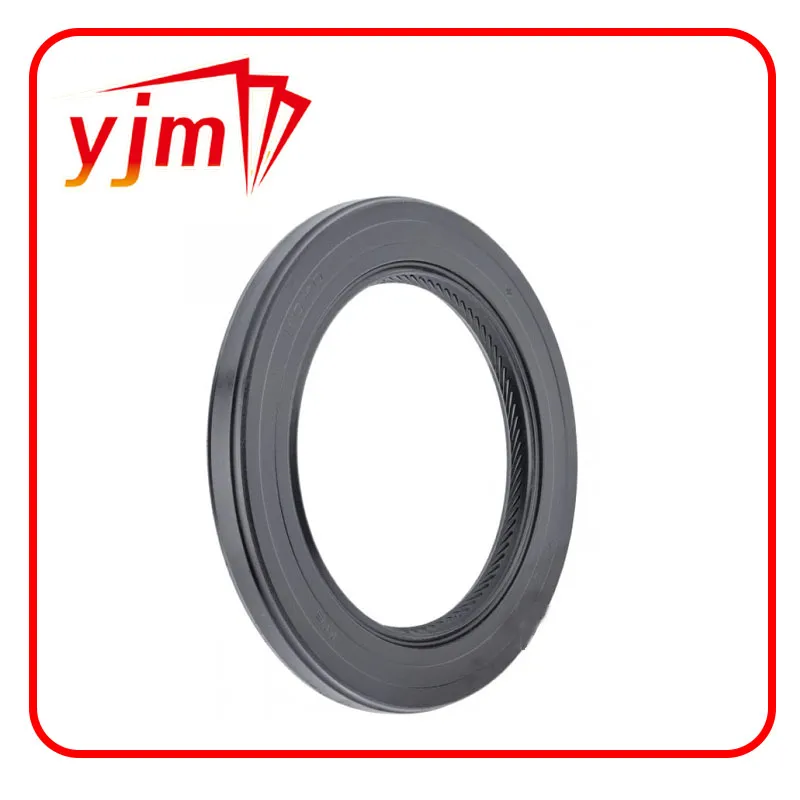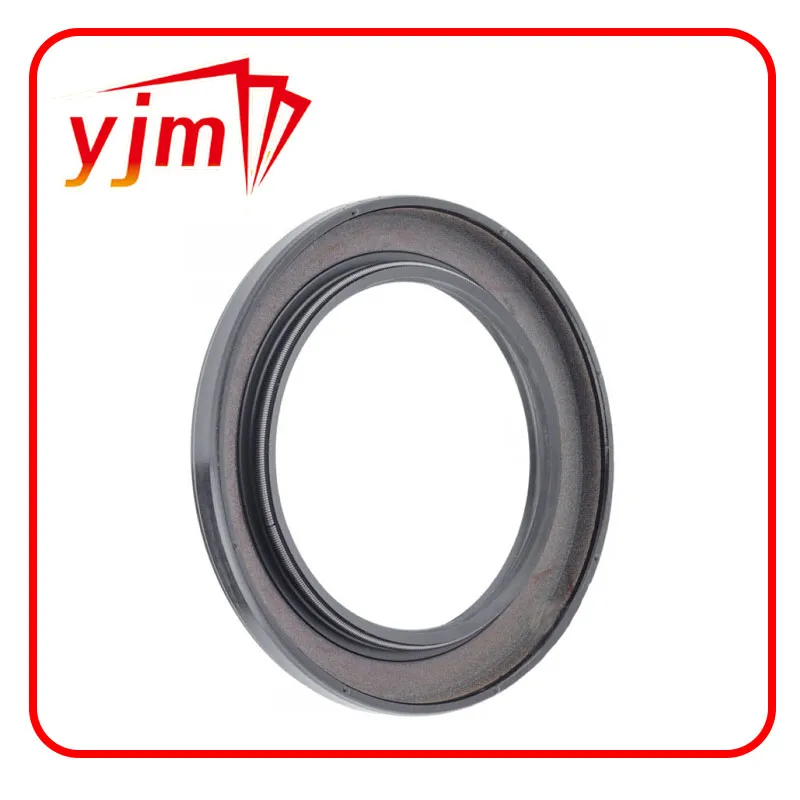The Role of Oil Pump Seals in Engine Efficiency and Emission Reduction
Oil pump seals play a crucial yet often underappreciated role in modern engine performance. Their primary function is to prevent oil leakage, but their contribution goes far beyond that. As automotive and industrial engines become more sophisticated, the demand for components that enhance both efficiency and environmental compliance is growing. Oil pump seals are central to these efforts, helping to reduce friction, prevent contamination, and minimize emissions. This article explores how oil pump seals contribute to engine efficiency and emission reduction, highlighting the growing importance of high-quality sealing solutions.
Enhancing Engine Efficiency Through Effective Sealing
Oil pump seals are designed to maintain a tight barrier between moving engine parts, ensuring that lubricating oil stays within the system. Proper lubrication is key to reducing friction between components, which in turn improves overall engine performance. When seals function effectively, the oil can be directed to where it is needed most, ensuring smooth operation. Without adequate sealing, oil leaks can occur, leading to a lack of proper lubrication, increased friction, and ultimately, lower engine efficiency.
By preventing oil leaks, oil pump seals help maintain optimal engine operation. This reduction in friction means the engine requires less power to function, leading to improved fuel efficiency. Additionally, well-maintained seals reduce wear and tear on the engine components, extending the life of the engine and minimizing the need for frequent repairs or replacements. This focus on efficiency aligns with the growing industry trend toward engines that not only perform better but also consume less fuel.
Seals as Guardians Against Emissions
One of the key ways in which high pressure oil seals contribute to emission reduction is by containing harmful gases and fluids within the engine. Incomplete or faulty seals can allow oil and other fluids to leak, potentially contaminating the environment. Moreover, oil leaks in the combustion chamber can lead to incomplete combustion, which produces higher levels of harmful emissions such as hydrocarbons, carbon monoxide, and particulate matter.
Metal oil seal are particularly important in controlling blow-by gases—unburned fuel vapors that escape from the combustion chamber and mix with the oil. When seals are properly fitted and maintained, they prevent these gases from escaping into the atmosphere, thus contributing to lower emissions. This containment also improves engine performance by ensuring that blow-by gases do not interfere with the oil's lubricating function.
For industries and automakers that are striving to meet stringent environmental regulations, effective sealing solutions are not just desirable—they are essential. As emission standards continue to tighten, the role of oil pump seals in minimizing leaks and reducing emissions becomes increasingly important.

Material Innovations for Better Sealing
To meet the growing demands for both efficiency and emission control, manufacturers are constantly innovating the materials used in oil pump seals. Traditional materials, such as rubber or metal, are being replaced or enhanced by advanced composites, elastomers, and high-temperature-resistant materials. These modern materials offer better sealing performance under high pressure and extreme temperature conditions, which are common in today’s more powerful and compact engines.
Innovative sealing materials also provide better resistance to chemical degradation caused by modern engine oils and additives. This resistance is crucial because seals that break down due to chemical exposure can lead to leaks, reduced engine efficiency, and increased emissions. By using advanced materials, oil pump seals can maintain their integrity for longer periods, ensuring consistent performance and reducing the need for frequent replacements.
The trend toward synthetic and composite materials in seal manufacturing is also aligned with the industry's focus on sustainability. These materials not only perform better under stress but also help reduce environmental impact by lasting longer and reducing the frequency of part replacements.
The Importance of Proper Installation and Maintenance
While material innovation plays a significant role in the performance of oil pump seals, proper installation and maintenance are equally critical. Even the best seals can fail if they are not installed correctly, leading to potential oil leaks and reduced engine efficiency. Proper alignment and fitting are necessary to ensure the seal forms a perfect barrier between moving parts.
Maintenance of oil pump seals involves regular inspections to check for wear and tear. As seals are exposed to extreme conditions within the engine, they can degrade over time. Regular maintenance can catch these issues before they lead to significant problems, such as oil leaks or increased emissions. Routine inspections also ensure that the seals are not being affected by other components within the engine, such as heat or chemical exposure.
By adhering to regular maintenance schedules and ensuring correct installation, the lifespan of oil pump seals can be extended, contributing to better engine performance and lower emissions over time. This proactive approach to seal management is especially important in industries where engines are subject to intense operational demands, such as in automotive, aerospace, and heavy equipment.
Looking Toward the Future
As engines continue to evolve, the demands placed on oil pump seals will only increase. With the push toward more fuel-efficient, lower-emission engines, oil pump seals will play an even more critical role in maintaining performance and compliance with environmental regulations. The ongoing development of advanced materials and sealing technologies will be key to ensuring that seals can withstand the increasing pressures and temperatures of modern engines.
In the future, we can expect even more focus on precision engineering in seal design, as well as the integration of smart technologies that monitor seal performance in real time. These innovations will help ensure that engines operate at peak efficiency while keeping emissions to a minimum.
JULU YJM HWMF SEAL-Your Reliable Rubber Seals Manufacturer
Rubber seals play a vital role in industrial fields. Only by purchasing from trustworthy manufacturers can the quality and precision be guaranteed. JULU YJM HWMF SEAL CO., LTD is a leading manufacturer of rubber seals in China, With many years of industry experience and excellent reputation, is able to be come your reliable supplier. Contact us now to get more information.

-
Understanding the Front Main Engine Seal: Purpose, Maintenance, and Installation
News Jul.29,2025
-
Understanding O-Rings and Seal Rings: Types, Applications, and Custom Solutions
News Jul.29,2025
-
Understanding Crankshaft Oil Seals: Rear Seals, Pulley Seals, and Their Role in Engine Integrity
News Jul.29,2025
-
The Importance of Front and Rear Crankshaft Seals in Engine Performance and Oil Management
News Jul.29,2025
-
Crank Oil Seals: Functions, Types, and Cost Considerations in Engine Maintenance
News Jul.29,2025
-
A Comprehensive Guide to O-Rings and Seals: Types, Materials, and Global Applications
News Jul.29,2025
-
Mastering Diesel and Performance Engine Maintenance: A Guide to Critical Oil Gaskets
News Jul.28,2025
Products categories















